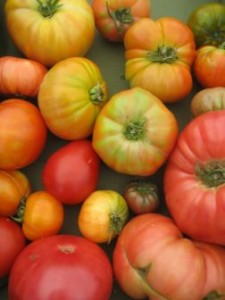These days many gardeners are concerned about the quality of the seeds they use in their gardens. There are a few reasons why it matters:

- Local — Seeds that are cultivated in your local geography are adapted to meet the soil and weather conditions of your local geography. That means they need less outside interference to thrive. Hmmm, seems a little obvious when you say like that, doesn’t it?
- Biodiversity — With an estimated 80% of all seeds worldwide being provided by only a couple of companies who can limit the variety of seeds available, the world is in danger of losing many plant varieties that were adapted to micro geographies.
- Nutritional quality — Poor quality seeds produce poor quality food. With all the effort put into gardening, you want to be growing nutritionally rich food. Plus, it tastes better.
- Organic — If you want truly organic vegetables, doesn’t it make sense to use organically produced seeds, as well as ensuring you’re cultivating it in an organic environment?
The question of whether to choose heirloom or heritage seeds, rather than random seeds which pretty much all come from the same Monsanto bin, is an important one to consider.
Related Topics:
Gina Mallet‘s book, Last Chance to Eat is an easy to read story of how food has changed as a result of the post- WWII environment. What I found especially interesting was the many unique local varieties of any given food over very short distances. Who knew?!


